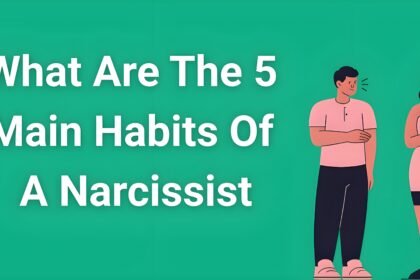Divorcing a narcissist after 20 years: The hidden reality – if you’re facing this devastating decision, you’re about to discover truths that will completely transform how you approach your divorce and prepare for the battle ahead. After working with thousands of survivors through NarcissismExposed.com as a Certified Narcissistic Abuse Specialist, I can tell you that divorcing a narcissist after two decades isn’t just ending a marriage – it’s escaping a carefully constructed prison where you’ve been systematically isolated, financially controlled, and psychologically manipulated.
- The Financial Warfare: What Divorcing a Narcissist After 20 Years Really Costs
- Divorcing a Narcissist After 20 Years: The Hidden Reality of Parental Alienation
- The Social Isolation Reality: Divorcing a Narcissist After 20 Years
- Legal Warfare: The Hidden Reality of High-Conflict Divorce
- Emotional Recovery: The Hidden Reality of Healing After Two Decades
- Financial Recovery: Starting Over After 20 Years
- Key Takeaways: Divorcing a Narcissist After 20 Years: The Hidden Reality
- Frequently Asked Questions
The hidden reality is that divorcing a narcissist after 20 years involves challenges that family court systems, divorce attorneys, and even well-meaning friends simply don’t understand. This isn’t a typical divorce where two people decide to part ways amicably. This is psychological warfare where your ex-spouse will use every weapon at their disposal – including the legal system itself – to maintain control and punish you for daring to leave.
What makes this particularly devastating is that after 20 years, you’re not just divorcing a person – you’re dismantling an entire life structure that was designed to keep you trapped. The financial entanglement, social isolation, and psychological conditioning create barriers to freedom that most people can’t comprehend.
Understanding the hidden reality of this process isn’t about discouraging you from seeking freedom – it’s about arming you with the knowledge and strategies you need to navigate this complex battle successfully while protecting your sanity, your children, and your future.
The Financial Warfare: What Divorcing a Narcissist After 20 Years Really Costs
One of the most shocking aspects of divorcing a narcissist after 20 years involves the financial warfare that most people never anticipate. Unlike healthy individuals who want to divide assets fairly and move forward, narcissists view divorce as an opportunity to destroy their former spouse financially while maintaining control through economic manipulation.
The financial abuse that may have been subtle during the marriage becomes weaponized during divorce proceedings. Narcissists often view marital assets as “theirs” regardless of legal ownership, and they’ll spend enormous amounts of money on legal fees specifically to ensure you receive as little as possible.
The Hidden Financial Traps
After 20 years of marriage, the financial entanglement runs deep, and narcissists exploit every vulnerability they’ve created over two decades. They understand your financial fears, weaknesses, and dependencies because they’ve carefully cultivated them.
Common financial warfare tactics include:
- Hidden assets and income sources discovered only after lengthy legal discovery
- Deliberate destruction or devaluation of marital assets out of spite
- Strategic job changes or business restructuring to reduce apparent income
- Excessive legal spending designed to bankrupt you before settlement
- Using joint debts and credit destruction as weapons of control
- Manipulating business valuations and ownership structures
- Creating false financial emergencies to delay proceedings
The 20-year factor makes financial abuse particularly devastating because:
- Your earning capacity may have been compromised by years of career sacrifice
- You may have been excluded from financial decisions and knowledge
- Retirement accounts and pensions represent decades of accumulated wealth
- Real estate and business interests are more complex and valuable
- You may lack recent work experience or professional networks
- Age discrimination can make career rebuilding more challenging
Research from the Journal of Family Economic Issues shows that women divorcing after long-term marriages often experience a 45% decline in household income, with the impact being more severe when the marriage involved financial abuse and control.
The Legal System’s Blind Spots
Family courts are often unprepared for the level of manipulation and deception that narcissists bring to divorce proceedings. Judges and attorneys trained in traditional family law may not recognize the sophisticated financial abuse tactics that characterize high-conflict divorces.
Common judicial blind spots include:
- Assuming both parties want to reach fair agreements
- Not recognizing deliberate asset hiding and income manipulation
- Treating frivolous motions and delays as normal legal strategy
- Failing to understand the psychological dynamics of narcissistic abuse
- Applying standard custody and support formulas to abnormal situations
- Not recognizing the safety implications of financial dependence
This means that divorcing a narcissist after 20 years requires:
- Forensic accountants who can uncover hidden assets
- Attorneys experienced in high-conflict divorce and personality disorders
- Detailed documentation of financial abuse and control patterns
- Protective orders that include financial provisions
- Strategic planning for extended litigation and appeals
- Alternative dispute resolution methods that account for power imbalances
Divorcing a Narcissist After 20 Years: The Hidden Reality of Parental Alienation
When children are involved in divorcing a narcissist after 20 years, the hidden reality becomes even more complex and heartbreaking. Adult and teenage children who have witnessed the marriage dynamics may have normalized the abuse or been manipulated into believing the narcissistic parent’s version of reality.
Parental alienation in long-term marriages is particularly sophisticated because the narcissistic parent has had decades to cultivate special relationships with the children while subtly undermining the other parent. This isn’t the obvious alienation that courts sometimes recognize – it’s a subtle process of emotional manipulation that can turn children against the healthy parent.
The Adolescent and Adult Child Challenge
Children who are teenagers or adults during the divorce present unique challenges because they may have internalized their narcissistic parent’s worldview and blame the healthy parent for “destroying the family.” After 20 years, these children have never known a different dynamic and may view the narcissistic behavior as normal.
Common manipulation tactics with older children include:
- Positioning themselves as the victim of their spouse’s “sudden” changes
- Using financial leverage to maintain children’s loyalty and support
- Sharing inappropriate details about the divorce to gain sympathy
- Creating triangulation where children feel forced to choose sides
- Weaponizing graduations, weddings, and family events as battlegrounds
- Using grandchildren as tools of manipulation and control
The hidden reality for parents includes:
- Older children may initially reject the healthy parent’s perspective
- Financial support may be withheld or used as manipulation tools
- Important family events may become sources of conflict and division
- Children may not understand the abuse dynamics until they’re much older
- The healing process for family relationships may take years or decades
- Some relationships with children may never fully recover
Protecting Yourself and Your Children
The process of divorcing a narcissist after 20 years while protecting your children requires a delicate balance between honoring their autonomy and protecting them from manipulation. This is particularly challenging when children are old enough to make their own decisions about relationships and living arrangements.
Protective strategies include:
- Avoiding the temptation to explain or defend your decision to leave
- Maintaining consistent, unconditional love regardless of their initial reactions
- Seeking family therapy with professionals who understand narcissistic abuse
- Documenting instances of parental alienation for legal purposes
- Focusing on long-term relationship health rather than immediate vindication
- Building support systems that don’t depend on your children’s approval
Important boundaries with children:
- Don’t use them as confidants or emotional support systems
- Avoid speaking negatively about their other parent, even when it’s true
- Don’t expect them to understand or validate your decision immediately
- Maintain your own healing process independent of their reactions
- Seek professional support for the grief of damaged relationships with children
The Social Isolation Reality: Divorcing a Narcissist After 20 Years
One of the most devastating hidden realities of divorcing a narcissist after 20 years involves the social isolation and relationship destruction that accompanies the legal proceedings. After two decades, your social circles, friendships, and even family relationships have likely been shaped by your narcissistic spouse’s manipulation and image management.
Narcissists are master image managers who have spent 20 years cultivating relationships that serve their agenda while systematically isolating you from independent support systems. When you file for divorce, you often discover that many people you considered friends were actually more loyal to your spouse or have been fed a carefully crafted narrative about your mental health and stability.
The Friend and Family Fallout
The social aftermath of divorcing a narcissist after 20 years can be as devastating as the legal and financial battles. People who don’t understand narcissistic abuse often side with the partner who appears more stable, charming, and reasonable – which is usually the narcissist.
Common social challenges include:
- Mutual friends who believe the narcissist’s victim narrative
- Family members who pressure you to “work it out” or “try harder”
- Social groups that exclude you to avoid taking sides
- Professional relationships that become strained due to the narcissist’s influence
- Community organizations where your involvement becomes uncomfortable
- Long-term friendships that end due to loyalty conflicts
The narcissist’s campaign typically includes:
- Sharing selective information that makes you appear unstable or vindictive
- Positioning themselves as the wounded party who tried everything to save the marriage
- Using your emotional responses to the abuse as evidence of your instability
- Mobilizing supporters who pressure you to reconcile or compromise
- Spreading rumors about your mental health, parenting, or character
- Using social media and public platforms to control the narrative
Rebuilding Your Support Network
Recovery from divorcing a narcissist after 20 years requires building entirely new support systems based on authentic relationships rather than social convenience or appearance management. This process can feel overwhelming when you’re already dealing with legal, financial, and emotional challenges.
Healthy support building includes:
- Connecting with other survivors of narcissistic abuse who understand your experience
- Seeking professional support from therapists trained in narcissistic abuse recovery
- Joining support groups specifically for high-conflict divorce survivors
- Building relationships with people who value authenticity over image
- Establishing connections independent of your previous social circles
- Developing interests and activities that reflect your authentic self
Red flags in potential support relationships:
- People who pressure you to reconcile or minimize the abuse
- Friends who want to remain “neutral” in clearly abusive situations
- Anyone who suggests you’re equally responsible for the marriage problems
- People who are charmed by your ex-spouse’s public persona
- Those who minimize your experience or suggest you’re being dramatic
Legal Warfare: The Hidden Reality of High-Conflict Divorce
Understanding the legal reality of divorcing a narcissist after 20 years requires recognizing that traditional family law approaches often fail catastrophically when dealing with personality-disordered individuals. The legal system assumes both parties want to reach fair agreements and move forward with their lives, but narcissists use the legal system as another arena for control and punishment.
High-conflict divorce with a narcissist can last for years and cost hundreds of thousands of dollars, not because the issues are complex, but because the narcissist uses legal proceedings as a weapon of financial and emotional abuse. They file frivolous motions, demand unnecessary hearings, and create legal emergencies designed to exhaust your resources and resolve.
The Litigation Abuse Tactics
Divorcing a narcissist after 20 years often involves systematic litigation abuse designed to bankrupt you emotionally and financially before you can achieve freedom. These tactics are sophisticated and difficult for courts to recognize because they masquerade as legitimate legal action.
Common litigation abuse patterns include:
- Filing multiple emergency motions that require immediate legal response
- Demanding depositions and discovery that exceed reasonable necessity
- Creating false allegations that require expensive defense and investigation
- Using continuances and delays to extend the emotional and financial torture
- Filing appeals and post-judgment modifications to maintain control indefinitely
- Violating court orders in ways that are difficult to prove or enforce
The financial impact includes:
- Legal fees that can easily exceed $100,000 in contested cases
- Lost wages from constant court appearances and legal meetings
- Stress-related health problems that create additional medical expenses
- Career damage from the time and emotional energy required for defense
- Depletion of marital assets through excessive legal spending
- Long-term debt accumulation from borrowing to fund legal defense
Finding the Right Legal Team
Success in divorcing a narcissist after 20 years depends heavily on assembling a legal team that understands high-conflict divorce and personality disorder dynamics. Traditional family law attorneys who focus on amicable resolution may be unprepared for the level of manipulation and deception involved.
Essential legal team characteristics:
- Experience with high-conflict divorce and personality disorders
- Understanding of narcissistic abuse dynamics and litigation tactics
- Willingness to maintain firm boundaries and not be charmed by your ex-spouse
- Access to forensic accountants, custody evaluators, and mental health professionals
- Strategic thinking that anticipates manipulation and prepares countermeasures
- Emotional resilience to handle extended, contentious proceedings
Warning signs of inadequate representation:
- Attorneys who suggest your ex-spouse “isn’t that bad” or “just wants what’s fair”
- Legal teams that seem charmed by your ex-spouse’s presentation
- Lawyers who pressure you to accept unfavorable settlements for the sake of “moving on”
- Attorneys who don’t understand the safety implications of financial dependence
- Legal counsel that treats your case like a standard divorce despite obvious red flags
Emotional Recovery: The Hidden Reality of Healing After Two Decades
The emotional reality of divorcing a narcissist after 20 years involves trauma recovery that most people don’t understand. You’re not just processing the end of a marriage – you’re recovering from two decades of systematic psychological abuse that has fundamentally altered your sense of self, reality, and worth.
After 20 years with a narcissist, your nervous system has been conditioned to hypervigilance, your identity has been eroded through constant criticism and gaslighting, and your capacity for trust – including self-trust – has been systematically destroyed. The healing process requires more than typical divorce counseling or support groups.
The Complex Trauma of Long-Term Abuse
Divorcing a narcissist after 20 years means recovering from complex trauma that affects every aspect of your psychological and physical functioning. This isn’t just sadness about a relationship ending – it’s trauma recovery from sustained psychological warfare.
Common trauma symptoms include:
- Hypervigilance and anxiety that make daily functioning difficult
- Depression and emotional numbness alternating with overwhelming feelings
- Physical symptoms including chronic pain, fatigue, and immune system problems
- Difficulty making decisions or trusting your own judgment
- Intrusive thoughts and memories of abuse incidents
- Social anxiety and difficulty connecting with new people
- Sleep disturbances and concentration problems
The 20-year factor intensifies trauma because:
- The abuse has been normalized and internalized over decades
- Your identity formation may have occurred entirely within the abusive relationship
- Career, social, and personal development were shaped by the narcissist’s agenda
- Coping mechanisms developed during the marriage may be maladaptive outside it
- The trauma bonding is deeply embedded and difficult to break
- Recovery involves grieving not just the relationship but decades of your life
Rebuilding Your Identity and Self-Worth
One of the most challenging aspects of divorcing a narcissist after 20 years is rediscovering who you are outside of the role you played in the narcissistic relationship. After two decades of having your thoughts, feelings, and preferences dismissed or manipulated, you may not even remember what you genuinely enjoy or value.
Identity rebuilding involves:
- Reconnecting with interests and values that were suppressed during the marriage
- Learning to trust your own perceptions and emotional responses
- Developing decision-making skills independent of the narcissist’s approval
- Building self-esteem that doesn’t depend on external validation
- Creating personal goals and dreams that reflect your authentic desires
- Establishing relationships based on mutual respect and genuine care
The healing process typically includes:
- Specialized therapy for complex trauma and narcissistic abuse recovery
- Support groups with other survivors who understand your experience
- Gradual re-engagement with activities and relationships that bring joy
- Development of self-care practices that prioritize your wellbeing
- Learning to celebrate small victories and progress rather than expecting rapid transformation
- Building a life that feels authentic and fulfilling rather than performative
Financial Recovery: Starting Over After 20 Years
The financial reality of divorcing a narcissist after 20 years often involves starting over economically while dealing with damaged credit, limited work experience, and the ongoing costs of legal battles and therapy. This financial rebuilding occurs while you’re also recovering emotionally and often caring for children affected by the divorce.
The hidden reality is that financial recovery takes longer than most people expect and requires specific strategies that account for the unique challenges of high-conflict divorce. Standard financial advice often doesn’t apply when you’re dealing with an ex-spouse who continues to use money as a weapon through support violations, hidden assets, and ongoing litigation.
Practical Financial Rebuilding Strategies
Rebuilding financial stability after divorcing a narcissist after 20 years requires both immediate survival strategies and long-term wealth building plans that protect you from future financial abuse.
Immediate financial protection includes:
- Opening individual bank accounts and credit cards in your name only
- Documenting all financial abuse and hidden assets for legal proceedings
- Creating emergency funds that your ex-spouse cannot access
- Protecting your credit score through monitoring and dispute processes
- Establishing separate business accounts if you have self-employment income
- Building relationships with financial institutions independent of your ex-spouse
Long-term financial building involves:
- Career rebuilding that may require additional education or training
- Retirement planning that accounts for years of lost earning potential
- Investment strategies that prioritize security and growth
- Insurance coverage that protects against future financial emergencies
- Estate planning that reflects your new family circumstances
- Building wealth that cannot be accessed or manipulated by your ex-spouse
Special considerations for the 20-year factor:
- Age discrimination in employment that may require creative career strategies
- Health insurance and medical costs that may have been covered during marriage
- College expenses for children that may become bargaining chips
- Retirement account divisions that affect long-term financial security
- Social Security benefits and other age-related financial planning needs
Key Takeaways: Divorcing a Narcissist After 20 Years: The Hidden Reality
The hidden reality of divorcing a narcissist after 20 years is that it’s not just ending a marriage – it’s escaping from a carefully constructed system of control that affects every aspect of your life, relationships, and future.
Remember these crucial insights:
- Financial warfare is deliberate and sophisticated – narcissists use money as a weapon to maintain control and punish you for leaving
- The legal system often fails to recognize manipulation tactics requiring specialized attorneys and extended litigation strategies
- Parental alienation may affect adult children who have normalized abusive dynamics over decades
- Social isolation is common as narcissists control narratives and turn mutual friends against you
- Emotional recovery requires specialized trauma treatment not standard divorce counseling
- Financial rebuilding takes longer than expected and requires protection from ongoing abuse
The path forward involves:
- Assembling a team of professionals who understand narcissistic abuse dynamics
- Preparing for extended legal and financial battles rather than hoping for quick resolution
- Focusing on your own healing and rebuilding rather than trying to expose or change your ex-spouse
- Building new support systems based on authentic relationships and shared understanding
- Protecting your children while allowing them to process the divorce at their own pace
- Celebrating small victories and progress rather than expecting rapid transformation
Understanding divorcing a narcissist after 20 years: The hidden reality isn’t about discouraging you from seeking freedom – it’s about preparing you for the challenges ahead so you can navigate them successfully. When survivors search for this information, they need honest insight into what they’re facing rather than platitudes about “moving on” or “letting go.”
Your decision to leave after 20 years represents incredible courage and strength. The challenges you’ll face are real and significant, but they’re temporary obstacles to the freedom and peace you deserve. The hidden reality includes both the difficulties ahead and the possibility of building a life that’s authentic, peaceful, and genuinely fulfilling.
Moving forward means accepting that this process will be harder than you hoped but not impossible. With the right support, strategies, and understanding of what you’re facing, you can successfully navigate this complex battle and build the life you’ve always deserved but never had the freedom to create.
Frequently Asked Questions
How long does it typically take to divorce a narcissist after 20 years of marriage?
High-conflict divorces involving narcissistic spouses typically take 2-5 years to fully resolve, significantly longer than standard divorces. The narcissist will likely use every legal tactic available to delay proceedings, drain your resources, and maintain control. Even after the divorce is finalized, post-judgment modifications and appeals can continue for years. The 20-year factor adds complexity through extensive asset division, retirement account splits, and potential spousal support calculations. Prepare for a marathon rather than a sprint, and budget accordingly for extended legal fees and emotional support needs.
What should I do if my adult children side with my narcissistic ex-spouse during the divorce?
Adult children siding with the narcissistic parent is unfortunately common after long-term marriages where the abuse dynamics have been normalized. Avoid the temptation to defend yourself or explain the abuse to them, as this often backfires and appears vindictive. Instead, maintain consistent, unconditional love while setting healthy boundaries about what information you’ll share. Focus on your own healing and trust that as your children mature and potentially experience their own relationships, they may gain perspective on the family dynamics. Consider family therapy with a professional who understands narcissistic abuse, but don’t force participation.
How do I protect my finances when my narcissistic spouse controls everything?
Financial protection requires immediate action and strategic planning. Open individual bank accounts and credit cards in your name only, document all marital assets and debts, and consider working with a forensic accountant to uncover hidden assets. Remove your name from joint credit cards and loans where possible, and establish credit in your own name if you haven’t already. Keep detailed records of all financial abuse and control tactics for legal proceedings. Consider getting a protective order that includes financial provisions if there’s been economic abuse. Work with an attorney experienced in high-asset, high-conflict divorce who can help protect your interests during asset division.
Is it worth staying for financial security rather than facing divorce after 20 years?
Staying in an abusive marriage for financial security often costs more in the long run through damaged physical and mental health, lost opportunities for personal growth, and continued financial abuse. The financial challenges of divorce are temporary obstacles that can be overcome with proper planning and support, while the damage from continued abuse compounds over time. Many survivors find that their earning capacity and financial management skills improve dramatically once they’re free from the narcissist’s control and sabotage. Consider consulting with financial planners and attorneys to understand your realistic options before making this decision based on fear rather than facts.
How do I find attorneys and therapists who understand narcissistic abuse?
Look for professionals who specifically mention experience with high-conflict divorce, personality disorders, or narcissistic abuse on their websites or in their credentials. Ask potential attorneys about their experience with litigation abuse tactics and whether they understand parental alienation dynamics. For therapists, seek those trained in trauma therapy, complex PTSD, or domestic violence who understand that narcissistic abuse creates specific trauma patterns. Ask direct questions about their understanding of narcissistic personality disorder and whether they recommend couples therapy (which is typically not safe with narcissists). Get referrals from domestic violence organizations or narcissistic abuse support groups rather than general professional directories.
What if my narcissistic ex-spouse threatens suicide or self-harm during divorce proceedings?
Threats of suicide or self-harm are common manipulation tactics used by narcissists to regain control when facing consequences like divorce. Take all threats seriously by contacting emergency services or crisis hotlines, but don’t abandon your divorce plans or return to the relationship because of these threats. Document all threats for legal purposes and inform your attorney and the court if necessary. Remember that you cannot prevent someone else’s self-harm by sacrificing your own safety and wellbeing. These threats often escalate when the narcissist realizes they’re not effective at stopping your progress, but they typically don’t follow through once they understand the threats won’t change your decision.
How do I cope with the guilt of “breaking up the family” after 20 years?
Guilt about ending a long-term marriage is normal, but remember that you’re not breaking up a healthy family – you’re escaping an abusive system that was already broken. The narcissist broke the family through years of emotional abuse, manipulation, and relationship destruction. Your children deserve to see what healthy relationships look like, and staying in an abusive marriage teaches them that dysfunction is normal. The guilt often comes from the narcissist’s messaging and societal pressure to preserve marriages at any cost. Work with a trauma-informed therapist to process these feelings and remember that protecting yourself and modeling healthy boundaries is one of the best gifts you can give your children.






